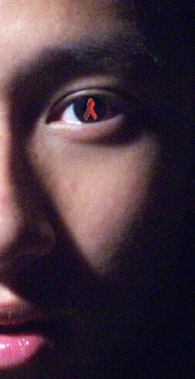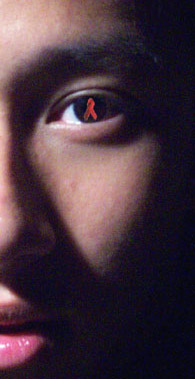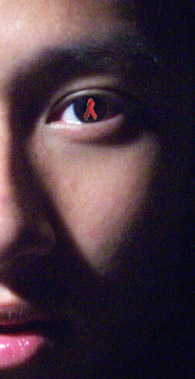In recent years, community-based HIV prevention programs have been blamed for the increasing rates of HIV infections in the gay community. Critics have accused AIDS agencies of issuing simplistic messages and "Pavlovian dictates" that cause men to have sex that puts them or others at risk for HIV.* I suspect that many of these criticisms come from over-inflated egos seeking to promote themselves and their own agendas. Some come from frustration at new infections. While there are plenty of reasons to criticize prevention agencies -- trust me, I worked in one for years, and made plenty of mistakes -- some of this blame also masks painful questions about who's responsible for the course of the AIDS epidemic in the gay community.

Are You Having Safer Sex?
More of us are having unsafe sex and with more partners, and more of us are getting infected. There is no one reason why people are having unsafe sex. Different people give different explanations: Unsafe sex feels better. My partner is responsible for protection. New treatments make AIDS no big deal. People don't really get sick from HIV. Others never had the economic, psychological, or emotional resources necessary to protect their own health.
There's been a hue and a cry that many of us have an inalienable right to intimacy, which for some of us means exchanging semen. No one would dispute that sex without latex can be much, much more intimate. But how intimate do you need to be, with whom, and when? Does it mean the same to you to not wear condoms with your lover as with the guy you met last Thursday whose name and HIV status you didn't know, or the guy you'll trick with tonight ? Or with five, ten, or twenty more guys this year? Isn't taking care of each other also part of intimacy? Gay liberation was about the freedom to have sex, to break rules, to have no limits. And we can have most of that. We don't have to be prudish -- we just need to be prudent.
Let's Not Forget Businesses
While it's important that AIDS service organizations and public health departments take a leadership role in reducing infections let's not forget the role businesses can play. Our society holds tobacco companies responsible for contributing to the health risks of their customers. Public health advocates are attempting to do the same for gun manufacturers and alcohol companies. We expect these companies to minimize risk, and to encourage their customers to be responsible. Why should it be any different for bar and bathhouse owners, circuit-party organizers and Internet providers?

The pharmaceutical industry has invested plenty in marketing their HIV medications. Would it be too much for them to contribute to the community's prevention efforts as well? Marketing strategies that make HIV treatment look like a vacation only exacerbate misconceptions about what it is really like living with HIV.
Most gay newspapers give only slight discounts to prevention agencies for advertising. Can't we expect them to give fair coverage and more reasonable advertising rates to prevention programs? It might even benefit the newspapers financially if readership grew from better coverage of sex and sexual health in our community, and the factors that promote -- and discourage -- risk.
Where's the community in our community-based organizations?
Many of us, as individuals and local business owners, founded our AIDS prevention agencies. We created them, we supported them, we were them. We knew what the problem was -- that we were getting sick and dying -- and we created prevention organizations as the solution.
But then we expected these organizations to take over, and we get angry when they don't meet our expectations as new infections continue.
In one notable case, Dan Savage -- a founder of Gay City in Seattle -- argued publicly for the organization's funding to be taken and sent to Africa when the agency had failed to bring down the rates of new infections.
Sure, AIDS agencies need to assume responsibility for listening to the community, responding to our wants, and mobilizing our resources. They need to be careful that they don't fall prey to the forces that turn many grassroots efforts into bureaucracies and become too top-heavy. They need to be careful that their responsiveness to funders doesn't overwhelm their responsiveness to us. They need to maintain roles for volunteers to assume real leadership, not just stuff envelopes.

When was the last time you volunteered? There is no way for the small prevention staffs to maintain the kind of AIDS prevention many people in the community are demanding. Compare Coca-Cola's advertising budget to AIDS prevention's, and then ask why prevention messages aren't as effective as they could be.
You don't even need to set foot in an agency. The important thing is to do something to reduce not only your own risk -- but someone else's as well. Once while doing outreach, a young man told me that every time his roommate went out cruising he left condoms and lube on his bed. That's effective AIDS prevention. That kind of day-to-day involvement and caring was how we reduced infections by historic amounts in record time in the early 80's.
You Can't Always Get What You Want
Many of us want lots of carefree, unprotected, barrier-free sex with as many partners as we want. At the same time, we want HIV and AIDS to end. In our wishful thinking, some of us are forgetting the hard reality. We can't have both.
Sexually active men are responsible for HIV prevention. And it's the job of schools, families, government, and religious institutions to make sure that we raise generations of gay (and straight, ad infinitum) youth to value health, sex and one another. If we want to end new HIV infections in our community, and help assure that those future generations have a healthier future, we're each going to have to do our part -- in our legislatures, workplaces, and bedrooms.
It's really our choice.
